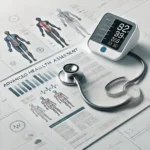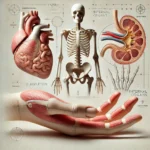Studying for nursing exams can be overwhelming, especially when juggling complex subjects like pathophysiology and medical-surgical nursing. For students aiming to excel in these challenging areas, test banks have become an invaluable study tool. By providing realistic, exam-style questions that mimic the content and structure of real nursing exams, test banks help students master essential knowledge and refine their critical thinking skills.
In this guide, we’ll explore top study strategies tailored for nursing students, focusing on effective ways to use nursing test banks, including the Pathophysiology McCance Test Bank and the Lewis Medical-Surgical Nursing 12th Edition Test Bank. Whether you’re preparing for a mid-term or gearing up for the NCLEX, these expert tips will help you maximize your study time, reinforce difficult concepts, and build confidence for test day. Let’s dive into the best methods for integrating test banks into your study routine, ensuring you’re prepared to succeed at every step of your nursing journey.
Table of Contents
ToggleWhy Nursing Students Should Use Test Banks for Exam Preparation
For nursing students, the pressure to retain vast amounts of medical information and apply it in clinical settings can be intense. Medical Surgical Test banks and Pathophysiology Test banks are an essential resource, providing students with a structured, question-based approach to studying that mirrors real exam formats. By integrating test banks into your study routine, you can streamline your preparation, boost your understanding of critical topics, and strengthen your confidence as you approach exams. Using test banks effectively helps you not only retain information but also apply it practically, which is crucial for success in nursing school and beyond.
Benefits of Test Banks in Understanding Complex Nursing Concepts
Nursing subjects like pathophysiology and medical-surgical nursing cover complex and interwoven concepts that are challenging to grasp through traditional reading alone. Test banks offer targeted questions on specific topics, allowing you to identify gaps in your understanding. By practicing with test bank questions, you engage in active recall, a proven study technique that enhances comprehension and retention. Test banks also provide explanations for correct and incorrect answers, offering deeper insights into complex subjects and helping you develop a more nuanced understanding.
How Test Banks Can Improve Your Exam Performance
One of the main advantages of using test banks is their ability to simulate real exam conditions, which is essential for mastering time management and question interpretation under pressure. Regular practice with test bank questions helps you become familiar with the language, format, and depth of questions you’ll encounter on exams. By consistently testing yourself, you can identify your strengths and weaknesses, focus on areas needing improvement, and build confidence. Additionally, test banks prepare you for the high-stakes NCLEX exam, as many test banks are structured similarly to NCLEX-style questions, setting you up for success in your nursing career.
Types of Test Banks Essential for Nursing Studies

Nursing students encounter a variety of subjects that each require a unique approach to learning and retention. Test banks provide the advantage of practicing exam-style questions that cover specific nursing disciplines, such as pathophysiology and medical-surgical nursing. Understanding the types of test banks available and knowing which ones to prioritize can greatly enhance your study efficiency. By selecting the right test banks, you can focus on critical concepts within each subject area and develop the confidence to apply this knowledge in exams and clinical settings.
Pathophysiology Test Banks: Key Resources
Pathophysiology, which examines the functional changes in the body due to disease, is a foundational subject that requires deep comprehension. Pathophysiology test banks, like the Pathophysiology McCance Test Bank, offer detailed, scenario-based questions that challenge students to apply theoretical knowledge to real-life cases. These test banks emphasize core areas such as cellular function, body system responses, and disease progression, helping you grasp the underlying mechanisms that impact patient health. Practicing with these questions allows you to better understand how diseases affect the body, enhancing both your exam preparation and clinical decision-making skills.
Medical-Surgical Test Banks: A Comprehensive Tool for Practice
Medical-surgical nursing encompasses a broad range of skills and knowledge essential for providing care in various healthcare settings. Test banks like the Lewis Medical-Surgical Nursing 12th Edition Test Bank are invaluable for reinforcing your understanding of critical topics, from patient assessment to surgical interventions and post-operative care. These test banks simulate the diverse types of questions seen on exams, including case studies, multiple-choice, and critical-thinking questions, which focus on real-world scenarios. By regularly working through medical-surgical test bank questions, you’ll develop a strong foundation in patient care, recognize key symptoms, and improve your ability to prioritize treatments—skills that are essential both in exams and in clinical practice.
Effectively Use Pathophysiology Test Banks
Pathophysiology is one of the most challenging areas for nursing students, requiring not just memorization but a solid grasp of how diseases impact bodily functions. Test banks are powerful tools to reinforce this knowledge by providing exam-like questions that encourage active engagement with the material. To maximize the effectiveness of pathophysiology test banks, incorporate them regularly into your study routine, using each question as a learning opportunity to deepen your understanding and application of key concepts.
Breaking Down Pathophysiological Concepts with Practice Questions
Using practice questions is an excellent way to break down complex pathophysiological concepts. Start by reviewing each question carefully, analyzing why each answer choice is correct or incorrect. By dissecting the rationale behind questions, you’ll develop a clearer picture of how diseases progress, how symptoms manifest, and why certain treatments are chosen. This process encourages you to think critically and improves your ability to apply theoretical knowledge to patient care, strengthening your understanding of essential pathophysiology principles.
Tips for Using Pathophysiology McCance Test Bank
The Pathophysiology McCance Test Bank is a particularly effective resource for mastering this subject, as it provides a wide range of questions tailored to the complexities of pathophysiology. Here are some tips to make the most of it:
- Focus on Question Rationale: Each question in the McCance Test Bank includes detailed explanations. Make it a habit to review these explanations thoroughly, as they often clarify tricky concepts and provide deeper insights into disease mechanisms.
- Group Topics for Study Sessions: Organize questions by body systems or disease categories (e.g., cardiovascular, respiratory) to create focused study sessions. This approach allows you to build expertise in specific areas before moving on, enhancing retention.
- Simulate Exam Conditions: To build test-taking endurance, set a timer and work through a set number of questions in one sitting. This will help you manage your time more effectively in exams and feel more confident handling complex questions under pressure.
By regularly practicing with the McCance Test Bank and analyzing each question’s rationale, you’ll be able to approach pathophysiology exams with a deeper understanding and improved critical thinking skills.
Strategies for Maximizing the Lewis Medical-Surgical Nursing 12th Edition Test Bank
The Lewis Medical-Surgical Nursing 12th Edition Test Bank is a valuable tool for mastering the extensive material covered in medical-surgical nursing. With questions that mimic real exam formats and challenge you to apply knowledge in practical scenarios, this test bank can significantly enhance your exam readiness. To maximize its benefits, incorporate it into your study plan strategically, focusing on areas that are commonly tested and that require critical thinking. This approach will help you improve both your exam performance and clinical judgment.
Why This Edition Is Vital for Exam Success
The 12th Edition of the Lewis Medical-Surgical Nursing Test Bank is highly regarded for its comprehensive, up-to-date content that aligns closely with current nursing standards and best practices. This edition covers a broad spectrum of medical and surgical topics essential for nursing students, with questions designed to reinforce critical care skills, patient management strategies, and diagnostic reasoning. By studying with this test bank, you’ll gain insights into key areas often emphasized on exams, such as patient safety, evidence-based practices, and clinical reasoning. This focus makes the 12th Edition an indispensable resource for students preparing for both coursework and licensing exams like the NCLEX.
Practice Questions to Reinforce Surgical and Medical Knowledge
The Lewis test bank is packed with diverse question types, from multiple-choice to case-based scenarios, each reinforcing your knowledge in crucial areas of medical-surgical nursing. Here are some tips to make the most of these practice questions:
- Identify Core Topics: Use the test bank to focus on high-priority topics such as infection control, cardiovascular and respiratory care, and perioperative nursing. Practicing questions on these core areas will help solidify your understanding of essential content.
- Analyze Case-Based Questions: Case scenarios are particularly valuable for developing clinical decision-making skills. As you work through these, take time to consider each step of patient assessment, diagnosis, and treatment. This will enhance your ability to think critically and prioritize patient needs.
- Track Your Progress: After each session, review any questions you missed and focus on understanding why the correct answers are better choices. Over time, this will help reinforce your knowledge in weaker areas and build confidence as you approach exams.
By consistently working through questions in the Lewis Medical-Surgical Nursing 12th Edition Test Bank, you can strengthen your understanding of both fundamental and advanced concepts in medical-surgical nursing, preparing you for exams and real-world clinical settings.
Setting Up a Study Schedule with Test Banks
Creating a structured study schedule that incorporates test banks is one of the best ways to prepare effectively for nursing exams. A well-organized plan ensures consistent progress, maximizes retention, and reduces the stress of last-minute cramming. By dedicating regular time to test bank practice, you can systematically reinforce essential concepts while identifying areas that need improvement. In addition to daily or weekly question practice, a balanced schedule should allow time for reviewing core material and engaging with supplemental resources, such as lecture notes, textbooks, and clinical case studies.
Weekly Study Plan for Pathophysiology and Med-Surg
For complex subjects like pathophysiology and medical-surgical nursing, a weekly study plan can help manage the workload and keep you focused on high-yield topics. Here’s an example of an effective weekly schedule:
- Monday & Tuesday: Focus on pathophysiology. Begin with a thorough review of one system (e.g., cardiovascular or respiratory) and follow up with practice questions from the Pathophysiology McCance Test Bank to reinforce what you’ve learned.
- Wednesday & Thursday: Shift to medical-surgical nursing. Review key topics such as patient care protocols, surgical assessments, or post-operative care, then apply your knowledge with questions from the Lewis Medical-Surgical Nursing 12th Edition Test Bank.
- Friday: Revisit challenging questions and topics from earlier in the week. Use this time to clarify difficult concepts and go over any incorrect answers to solidify your understanding.
- Weekend: Engage in a longer practice session using a combination of pathophysiology and med-surg questions under timed conditions. This simulates the exam environment and helps build your test-taking stamina.
By rotating between these subjects throughout the week, you’ll build a stronger foundation in both areas without becoming overwhelmed by one subject alone. This structured plan ensures comprehensive coverage and balanced study across both disciplines.
Balancing Test Bank Practice with Other Study Methods
While test banks are an excellent resource for practice, combining them with other study methods is crucial for a well-rounded understanding. Here are a few strategies for integrating test bank practice with other study approaches:
- Active Note-Taking: Summarize key concepts or disease mechanisms in your own words after completing test bank questions. This helps reinforce critical information and improves retention.
- Flashcards for Quick Review: Create flashcards of essential terms, symptoms, and treatments from both pathophysiology and med-surg topics. Reviewing these in short bursts throughout the week can strengthen recall, especially for complex topics.
- Study Groups for Discussion: Collaborate with classmates to discuss challenging questions or case studies. Explaining your reasoning to others can deepen your understanding and highlight new perspectives on patient care.
- Visual Aids and Diagrams: Use diagrams or charts to visualize pathophysiological processes or surgical procedures. This can enhance comprehension, particularly for visual learners.
Balancing test bank practice with these methods will help you cover content more thoroughly, develop critical thinking, and be well-prepared for your exams. A varied approach ensures you’re not just memorizing answers but truly understanding and applying nursing concepts.
Simulate Exam Conditions Using Test Banks
Simulating exam conditions with test banks is one of the most effective ways to build confidence, improve time management, and reduce test anxiety. By regularly practicing under exam-like conditions, you’ll become more comfortable with the pressure and pace of real nursing exams. This approach helps you gauge your readiness, identify areas for improvement, and refine your test-taking skills to ensure peak performance on exam day.
Setting Up a Realistic Testing Environment
To get the most out of your test bank practice sessions, create a testing environment that mimics real exam conditions as closely as possible. Here’s how to set up a productive, focused space:
- Minimize Distractions: Choose a quiet area where you won’t be interrupted. Turn off your phone, avoid social media, and inform others around you that you’re in a focused study session.
- Use Only Approved Resources: During practice, avoid consulting notes or textbooks, as you won’t have these during an actual exam. Stick to the test bank questions to simulate the experience of working from memory and knowledge alone.
- Create a Testing Setup: If possible, use a computer or device similar to what you’d use in a real exam. Sit at a desk or table, and keep only what you’ll need, such as scratch paper and a pencil for calculations or notes.
Timing and Pacing Strategies for Success
Effective time management is key to excelling in nursing exams, where every minute counts. Practicing timing and pacing with test bank questions will help you manage your time strategically on test day. Here are some proven techniques:
- Set a Timer for Each Question: Use an average of 1-2 minutes per question, depending on the exam format. This will help you gauge how much time to spend on each question and avoid getting bogged down by difficult ones.
- Prioritize Answering Easier Questions First: When faced with a mix of easy and difficult questions, answer the easier ones first. This builds confidence, secures points, and leaves more time to work through challenging questions.
- Use the Process of Elimination: Practice narrowing down answer choices before selecting the best one. This approach helps save time and improves accuracy by allowing you to eliminate unlikely answers quickly.
- Review Your Answers If Time Permits: If you finish early, go back and review flagged or difficult questions. Double-check for any simple errors or misinterpretations that you can correct with the remaining time.
Reinforce Clinical Reasoning and Critical Thinking
For nursing students, developing clinical reasoning and critical thinking skills is essential to making informed decisions in patient care. Using test banks to practice these skills helps you analyze complex scenarios, weigh treatment options, and predict patient outcomes—all of which are key to becoming a competent nurse. Test bank questions are designed to mirror real-world situations, enabling you to strengthen these skills in a safe, controlled environment. By consistently practicing with questions that challenge your clinical reasoning, you can deepen your understanding and readiness for both exams and clinical practice.
Strengthening Diagnostic Skills Through Practice
Diagnostic skills are fundamental to nursing, requiring an ability to assess symptoms accurately, prioritize patient needs, and determine the best course of action. Practicing with test bank questions helps you refine these diagnostic skills by exposing you to a range of patient cases and scenarios. Here’s how to use these questions to improve your diagnostic abilities:
- Analyze Patient Symptoms: Review each question as if you’re assessing a real patient. Pay close attention to symptoms, history, and other clues, which can guide you toward a diagnosis.
- Consider Differential Diagnoses: Practice generating a few possible diagnoses for each case, then work through why certain options may be more likely than others. This process mirrors real diagnostic reasoning and helps you avoid diagnostic errors.
- Review Rationales for Each Answer: Test banks provide rationales that explain why each answer is correct or incorrect. Carefully studying these explanations can clarify key diagnostic principles and reinforce accurate decision-making.
Applying Theory to Real-World Scenarios
One of the biggest challenges in nursing education is bridging the gap between theoretical knowledge and practical application. Test banks play a critical role in this by presenting questions that simulate real-world scenarios, prompting you to apply theoretical concepts in a clinical context. Here’s how to enhance this skill:
- Work Through Case-Based Questions: Focus on questions that present comprehensive case studies or scenarios. These often require you to apply multiple layers of knowledge, such as patient assessment, diagnostic reasoning, and treatment planning.
- Practice Prioritization: Nursing often involves prioritizing interventions based on patient needs. Use test bank questions to practice deciding which actions are most urgent, especially in high-stakes or multi-faceted scenarios.
- Relate Concepts to Clinical Experiences: If you have clinical experience or past patient interactions, try relating test bank scenarios to these experiences. Drawing parallels between theoretical questions and real situations enhances retention and prepares you to act confidently in similar situations in the future.
Enhancing Retention and Recall with Test Banks Before Exams
As nursing exams approach, effective retention and recall become critical for success. Test banks are one of the most powerful tools to reinforce the material you’ve studied, helping you recall essential concepts under pressure. By incorporating test banks into your study routine, you actively engage in recall practice, which strengthens memory retention. Repetition through test bank questions simulates the conditions of the actual exam, making it easier to recall information when you need it most.
To maximize retention, it’s important to focus on both reviewing content and reinforcing knowledge through test bank questions. The goal is to identify weak areas and solidify your understanding of key topics, ensuring that you feel confident and well-prepared.
Last-Minute Review Tips
As the exam date draws near, last-minute review sessions can make a significant difference in reinforcing your knowledge. Here are some tips to use your test bank most effectively during these final review sessions:
- Focus on High-Yield Topics: Identify the most commonly tested areas, such as cardiovascular, respiratory, and infection control topics. Use the test bank to review questions on these key subjects, ensuring you’re prepared for the most frequent exam content.
- Prioritize Weak Areas: Review test bank questions that you previously struggled with. This allows you to target your weak points and reinforce those areas before the exam. Be sure to understand why you missed each question to avoid repeating mistakes.
- Practice Under Timed Conditions: Simulate the actual exam environment by practicing with test bank questions under timed conditions. This will help you refine your pacing and improve your ability to recall information quickly.
- Use Active Recall and Spaced Repetition: To enhance retention, utilize active recall by testing yourself without referring to notes. Spaced repetition, or reviewing questions at intervals, can also improve memory consolidation in the days leading up to the exam.
- Do Quick Reviews of Key Concepts: In the final hours before the exam, do a quick mental review of essential concepts. Focus on nursing interventions, diagnostic criteria, and patient care protocols. This brief review helps solidify core knowledge without overwhelming yourself with too much information.
Avoid Memorizing Answers Instead of Understanding Concepts
While it may seem tempting to memorize answers when using test banks, true mastery of nursing concepts comes from understanding the material at a deeper level. Memorization can help you remember specific facts, but it does little to prepare you for the application of knowledge in real-world clinical scenarios or in complex exam questions that require critical thinking. By focusing on understanding the underlying concepts and rationale behind each question, you can ensure long-term retention and develop the clinical reasoning skills necessary for effective nursing practice.
Here’s how to shift from memorization to conceptual understanding:
- Understand the Rationale Behind Each Question: For every question in the test bank, take the time to read and understand why each answer choice is correct or incorrect. This process deepens your comprehension of key concepts, helping you connect theory to practice.
- Focus on the “Why” and “How”: Instead of simply memorizing facts, ask yourself why a certain treatment is prescribed, why a specific symptom appears, or how a disease progresses. Understanding these concepts makes it easier to apply them in new situations and to retain information over the long term.
- Link Related Topics Together: Nursing knowledge is interconnected. Use test banks as an opportunity to link related concepts. For example, when studying cardiovascular disorders, relate them to other body systems such as the respiratory or renal systems. These connections strengthen your understanding and help you recall information more easily during exams.
- Avoid Relying on Pure Rote Learning: Rote memorization often leads to short-term retention but can backfire when questions are phrased differently or require application of knowledge. Instead, focus on grasping the core principles, processes, and critical thinking involved in patient care.
- Teach the Concepts to Someone Else: One of the best ways to deepen your understanding is to teach what you’ve learned to others. Explaining concepts aloud or in writing forces you to clarify your understanding, reinforcing your grasp on the material.














